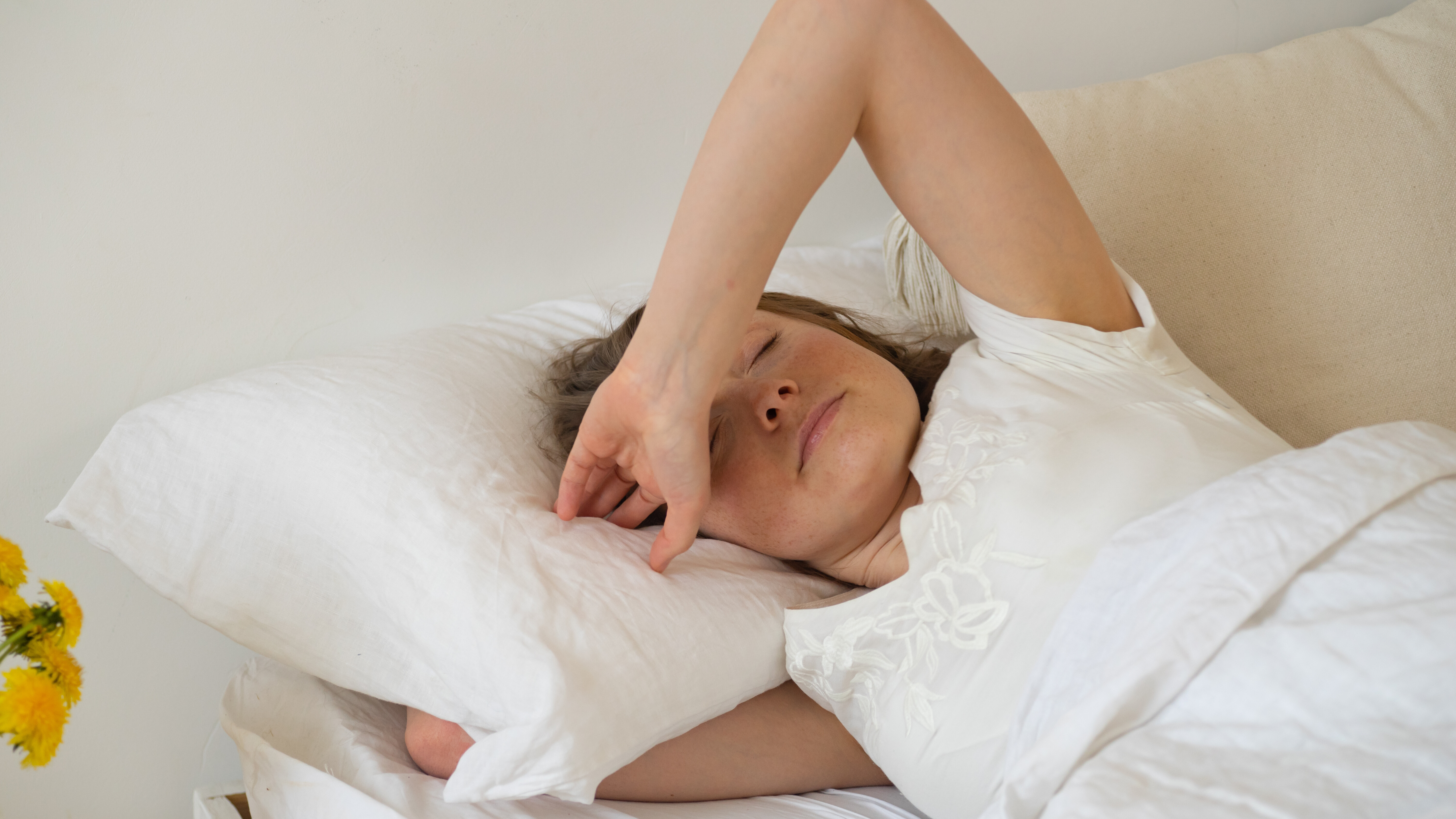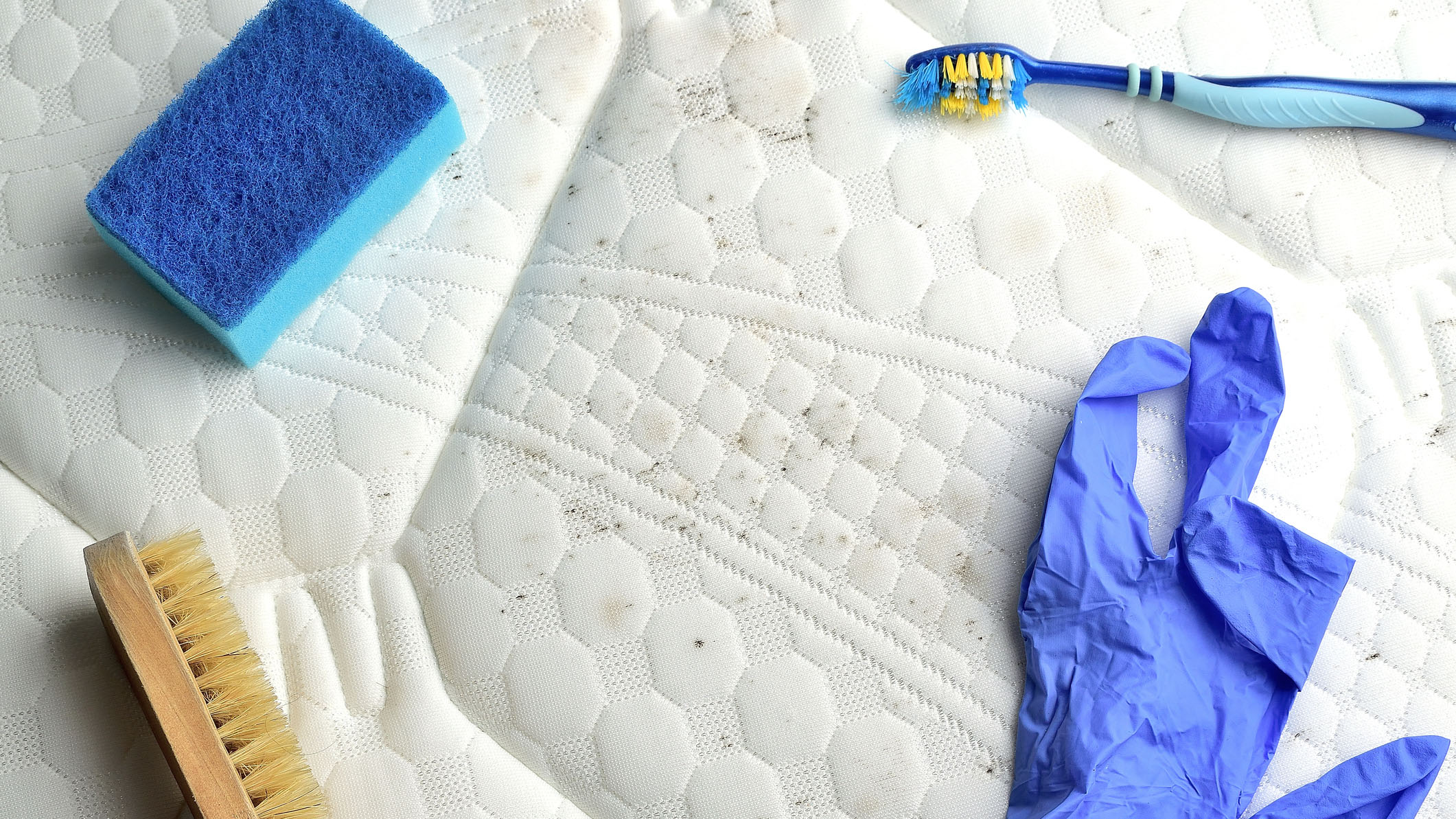
Memory foam is a popular mattress topper material thanks to its body-cradling comfort that can soften the hardest beds. Latex is another popular topper material, and it doesn't have the same drawbacks that memory foam has. So how can you tell if your memory foam topper is causing your current sleep problems and therefore you should switch to a latex mattress topper instead?
Some of the very best mattresses we've tested are made from natural latex and that's because latex is non-toxic, supportive, pressure relieving, durable and naturally cooling. However, latex mattresses don't come cheap, which is why a latex bed topper is great for adding this sustainable material to your sleep set-up for a fraction of the price.
Here we'll break down the common signs that you should be sleeping on a latex mattress topper, not a memory foam one. Plus, if you feel it's time to buy new, we've also rounded up our top three latex bed toppers to buy ahead of the Memorial Day mattress sales.
Today's top 5 mattress topper sales
- Tempur-Pedic Tempur-Cloud: was $229 now $137 at Tempur-Pedic
- Turmerry Latex Topper: was $150 now $99 at Turmerry
- Bear Mattress topper: was $345 now $225 at Bear
- Layla Mattress Topper: was $289 now $189 at Layla
- Nolah Mattress Topper: was $299 now $249 at Nolah Sleep
5 signs you should be sleeping on a latex mattress topper, not memory foam
1. You're waking up with lower back pain

The majority of this year's best mattress toppers are designed to add softness to a firm bed, meaning they tend to have a soft or medium firmness rating. This is fine for those who need extra cushioning, such as side sleepers, but some can be too soft and unsupportive for back, front, and plus-sized sleepers.
If the plush memory foam does not support your hips properly or keep them in line with your spine, this can lead to lower back pain. Latex mattress toppers tend to be denser and firmer than memory foam topper, so are better suited for those with aches and pains in the back.
2. You're finding it hard to move around

The best memory foam mattress toppers are great for motion isolation, as the foam is slow-moving and cushioning. However, this means it isn't the most responsive surface, which can make it difficult to change positions on. In fact, some people see the classic "hug" of memory foam to be stifling and immobilizing. Latex, on the other hand, doesn't have that sink-in feel, which is much better for restless or combination sleepers.
3. Your bed topper is already starting to sag
How long mattress toppers last depends on the material they are made from. Memory foam mattress toppers need to be changed regularly, every two to five years. Latex mattress toppers, meanwhile, have a much longer lifespan of five to 15 years.
If your topper is already starting to sag despite only being purchased two years ago, then it's probably time to buy a mattress topper that uses more durable materials such as latex.
4. You're overheating at night

If you're a hot sleeper and find yourself waking up at night in a sweat, it's likely that your memory foam topper is to blame (or at least, isn't helping). Memory foam's body-cradling properties also means it's prone to trap heat, causing hot sleepers to feel even hotter.
While you could look for some of the best cooling mattresses, a latex mattress topper is much cheaper and can provide some much needed breathability. Latex has a porous structure, meaning that it's naturally ventilating and cooling, so it's a great option for those who overheat at night or live in a hot climate.
5. You're allergies are flaring up

While memory foam is naturally dust-mite resistant, it doesn't mean it's antimicrobrial and resistant to other allergens. Unfortunately, if not aired properly, a memory foam topper can begin to grow mold.
On the other hand, latex is hypoallergenic, non-toxic, clean, and sustainable. A latex mattress topper can provide an allergy-free, natural sleep surface perfect for those who want a clean, green sleep.







